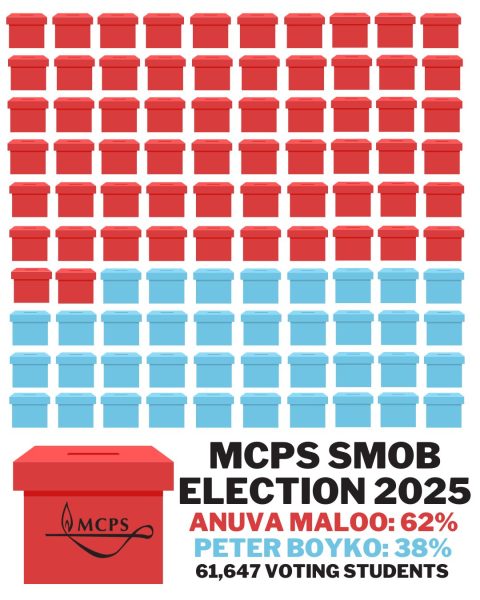MCPS releases anti-racist audit, action plan
The three-year action plan aims to address findings from the anti-racist audit at systemwide, domain-specific and school-level tiers.
Montgomery County Public Schools (MCPS) released its anti-racist audit, which is a two-year long review regarding MCPS policies and practices that revealed inequities in how MCPS addresses the needs of students of color versus their White peers.
MCPS wrote on their website that “racial disparities can be found in almost every area of MCPS including reading levels, participation in higher-level classes, graduation rates, suspension and discipline rates, and staffing.” The audit conducted by the Mid-Atlantic Equity Consortium also found that students, families and staff of color reported having a less satisfactory experience with MCPS than other members of the community.
The audit’s individual school report for RM showed that about 23.4 percent of RM students who responded to the surveys said that they felt they had been treated differently due to their race, skin color, ethnicity or culture and 40.4 percent said that they had been or seen other students teased or bullied for this same reason. The audit also reported that 21.3 percent of RM students said staff made assumptions about their intelligence or behavior based on their racial identity.
RM students can attest to this being accurate. “Most teachers have a different set of standards and expectations for Black students than their non-Black counterparts. There have been so many instances where my teachers will act shocked that I received a certain score in their class but not have that same reaction to other students. It just gives me the impression that they think it’s not possible for a minority student to do well academically,” sophomore Gabriella Elias, a Black Ethiopian student, said.
“I myself have experienced racism within the classroom by repeatedly being mistaken for the other black girl in my class when we look nothing alike,” sophomore Madison Carter, an African American student, said.
MCPS also released a three year action plan, which according to their website is designed to address the findings and recommendations from their anti-racist system audit. The action plan contains three levels: system-level actions, domain-specific actions and school-level actions. It intends to target racism by first providing system wide training for all staff, teaching students and teachers about racism to target school culture and having each school tailor their responses and goals based on their individual school reports.
RM students in general have the same view on whether advisory lessons would help mitigate the issue. “I don’t think the lessons on racism help because they have been the same for so long that we don’t learn anything new. [I] would suggest changing them and making the students more involved in them,” junior Madeline Watson, a White Polish and German student, said.
“I know and see how other students are during those lessons… people are on their phones, talking to their friends or making fun of the material presented which just creates an uncomfortable environment for students of color like myself. I also don’t think many people can really change how their brain is wired over a 20 to 30 minute slideshow in class,” Elias said.
Your donation will support the student journalists of The Tide, Richard Montgomery High School's student newspaper. Your contribution will allow us to purchase equipment and cover our annual website hosting costs.






